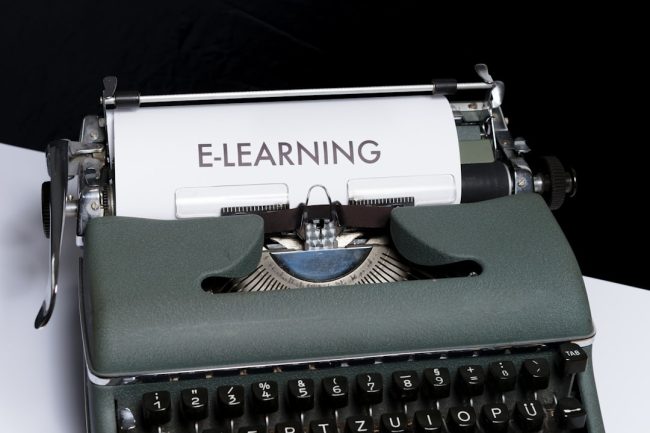The Rise of AI Coaches: Revolutionizing Personalized Training Advances in artificial intelligence (AI) have played a major role in the recent seismic shift in the training & development landscape. AI coaches—virtual assistants created to offer individualized training experiences based on individual needs—are among the most fascinating developments in this field. By analyzing user behavior, preferences, and performance metrics using advanced algorithms and machine learning techniques, these digital companions provide personalized guidance that was previously only available from human trainers.
AI coaches are more than just tools; they are a revolution in the way we think about learning and growth. By utilizing technology, businesses can now provide highly customized, scalable, and effective training programs that accommodate different learning styles & speeds. It is clear from learning more about AI coaches that they have the power to completely change the way we think about training and make it more efficient and accessible for all parties.
The capacity of AI coaches to offer individualized training programs that adjust to each user’s particular requirements is one of their biggest benefits. Artificial intelligence (AI) coaches examine individual performance data and learning preferences to develop customized programs, in contrast to traditional training methods that frequently take a one-size-fits-all approach. By ensuring that students receive the appropriate content at the appropriate time, this degree of personalization improves retention and engagement. Also, AI coaches are able to work around the clock, providing assistance to users as needed.
This adaptability accommodates different time zones & hectic schedules by enabling learners to interact with training materials whenever it is most convenient for them. A more welcoming training environment where people can advance at their own speed is the end result, which enhances performance and raises satisfaction levels. In the pursuit of efficient training solutions, AI coaches are becoming indispensable allies as businesses come to understand the significance of personalized learning. The personalization process is driven by data, an indispensable resource at the core of AI coaching. AI coaches gather and examine a great deal of data from users, such as their learning preferences, performance indicators, and even their feelings during training.
These digital coaches can find patterns and trends that guide the creation of personalized training plans by utilizing machine learning algorithms and advanced analytics. For example, if an AI coach notices that a user is having trouble understanding a particular concept or skill, it can modify the curriculum to include more resources or different explanations to help the user grasp. This data-driven strategy empowers students by granting them a sense of control over their educational path, in addition to improving training efficacy. Users’ confidence increases and they become more motivated to participate in the training process as they observe noticeable gains in their abilities and knowledge. Training success is largely dependent on motivation, & AI coaches are excellent at creating a positive learning atmosphere. Through the implementation of gamification strategies, including badges, rewards, and progress monitoring, AI coaches can establish an engaging environment that motivates users to stick with their objectives.
As users reach milestones along the way, these components not only increase the enjoyment of learning but also foster a sense of accomplishment. Also, users can stay motivated & on course with the help of AI coaches who can offer real-time feedback and encouragement. For instance, the AI coach can provide positive reinforcement to acknowledge a learner’s accomplishment when they finish a difficult module or show growth in a specific skill.
A growth mindset is promoted by this ongoing feedback loop, which enables users to welcome difficulties & see failures as teaching moments rather than roadblocks. Even though there are many advantages to using AI coaches, it’s important to be aware of any potential disadvantages. The danger of becoming overly dependent on technology is a major worry.
There is a chance that human interaction will decrease as more and more businesses use AI coaches for training. This can result in a lack of connection and emotional support, which many students find important in conventional training settings. Also, the caliber of the data AI coaches receive determines how effective they are. Inaccurate evaluations and suggestions could arise from partial or skewed data.
This emphasizes how crucial it is to make sure AI systems are created with ethical considerations in mind & are updated frequently to take into account the evolving needs and preferences of users. Achieving a balance between utilizing technology and preserving human interaction will be essential to optimizing AI coaching’s advantages and minimizing any potential disadvantages. Companies ought to think about combining these digital tools with human trainers in order to fully utilize AI coaches while resolving their concerns.
With this hybrid approach, the advantages of AI technology and human expertise are combined to create a comprehensive training ecosystem that meets the needs of a wide range of learners. The emotional support, guidance, and subtle insights that AI coaches might not be able to fully replicate can be obtained from human trainers. An AI coach, for example, can evaluate performance data and recommend tailored learning paths, but human trainers can provide context-specific advice and lead conversations that promote comprehension.
AI coaches & human trainers can collaborate to develop a more comprehensive learning environment that optimizes effectiveness & engagement. This cooperative approach promotes a continuous improvement culture within organizations in addition to improving training results. AI coaches in individualized training appear to have a bright future as technology continues to advance at an unprecedented rate.
It is anticipated that developments in machine learning algorithms & natural language processing (NLP) will allow AI coaches to have deeper discussions with users. This will improve their comprehension of user motivations & emotions, enabling even more individualized support. Also, as businesses adopt remote work and hybrid learning settings more frequently, AI coaches will be crucial in supporting opportunities for ongoing learning. Across diverse teams, these digital companions will help close knowledge and skill gaps by offering resources & on-demand support. Embracing the potential of AI coaches will be essential for organizations looking to stay competitive in a constantly shifting landscape as we enter this new era of training & development. To sum up, AI coaches are revolutionizing individualized training by providing experiences that are customized to meet each person’s needs & boost engagement and motivation.
These technologically sophisticated digital companions have the power to completely transform the way we think about learning & growth by utilizing data-driven insights. But in order to guarantee that students receive all-encompassing assistance throughout their academic careers, it is crucial to find a balance between technology & interpersonal communication. As businesses look to the future, utilizing AI coaches’ potential will be essential to developing training programs that satisfy the needs of a workforce that is becoming more and more dynamic. We at Designing Digitally are dedicated to assisting businesses in utilizing AI coaching because we recognize the value of individualized training.
Get in touch with us right now for a consultation catered to your specific requirements if you’re prepared to investigate how AI coaches can improve your training regimens!













